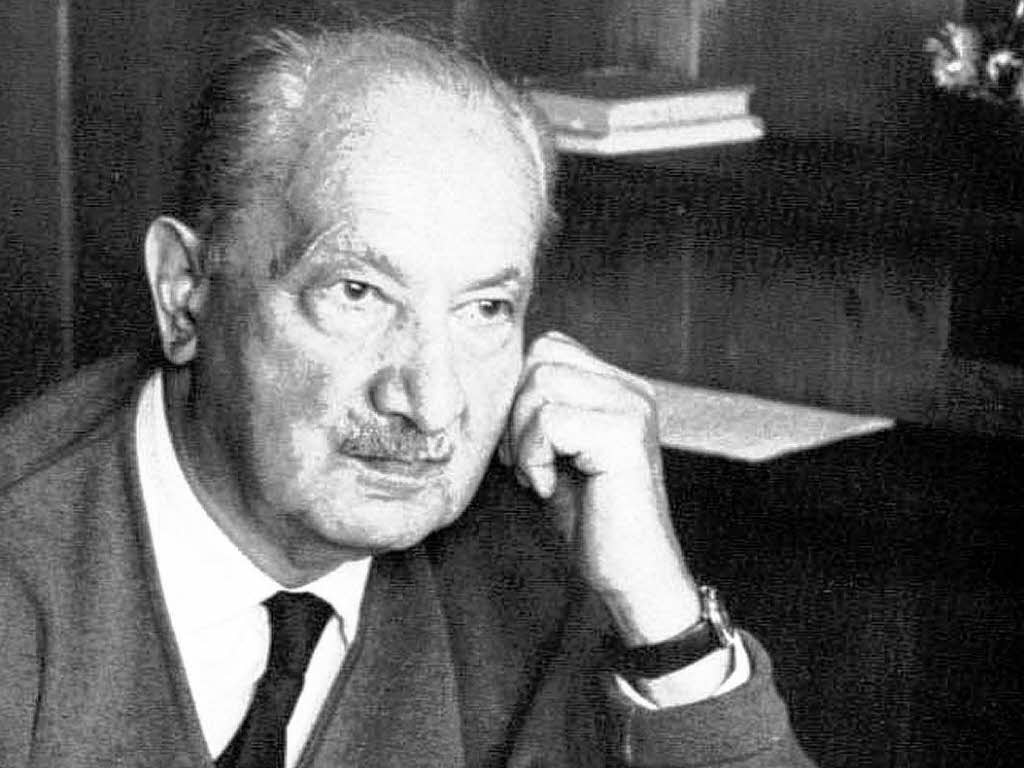
Controversy over persons like Max Planck and Martin Heidegger’s roles in Nazi Germany has permeated various historical writings. Were they willingly cooperating with the regime or covertly resisting it from the inside? The terms “collaboration” and “resistance” have been used to describe their actions, but neither terms are entirely adequate. Instead, I find words such as “opportunistic,” in regards to Planck and “acceptance” to Heidegger, to best describe their relationship with the Nazi’s.
Heidegger’s promotion to the position of Rector of Freiburg University coincided with the German Civil Service Law of 1933. Under the law, many of Heidegger’s Jewish colleagues lost their jobs at the university. In his essay, “The Rectorate 1933/34: Facts and Thought,” Heidegger attempts to paint his actions during the Nazi regime as a form of “resistance.” For example, Heidegger claims that he refused to post the notice for the German Civil Service Law. Even his membership in the Nazi Party was supposedly a symbolic gesture.[1] This raises questions about the legitimacy of his “resistance.” If Heidegger only joined the Nazi party as a gesture, this does not explain the fact that he remained a party member until 1945. The most damning evidence against the case of “resistance” would be Heidegger’s speech, “The Self-Assertion of the Germany University,” delivered upon his assumption of the position of rectorate. This speech is a synthesis of aspects of Nazism with Heidegger’s own philosophical beliefs. Heidegger espouses three specific bonds that bind the students: community, nation, and spirit. Through each bond, student’s must provide armed, labor, and knowledge service to the state. The individual student would thus have a duty to the country, and therefore become subordinate to it, just as his fellow citizens are.[2]
Though Heidegger’s relationship with the Nazis was not a form of “resistance,” it is a fallacy to assume that it must have then been a form of “collaboration.” There were indeed aspects of Nazism that Heidegger did not adhere to, particularly the rampant antisemitism; he did attempt to save a number of his colleges from termination under the Civil Service Law. Furthermore, for whatever reason, Heidegger never did play a prominent role within the party despite the possibilities of doing so. His tenure as rector only lasted a year before he resigned in 1934. It is difficult, then, with compelling evidence from each spectrum to define Heidegger’s relation in such a black and white fashion. What can characterize Heidegger’s relationship, though, is the feeling of passive acceptance. Heidegger was unwilling to speak out against the regime and even participated to a degree.
Just like Heidegger, Max Planck’s actions as president of the KWG can neither fully be described as “resistance” or “collaboration.” His initial reaction to the Civil Service Law of 1933 seemed indifferent. At the time of the law’s promulgation, Planck was on vacation. Despite numerous messages from a number of colleagues, such as the Jewish scientist Fritz Haber, Planck stayed for the entirety of his scheduled vacation. Upon Planck’s return, he expressed concern over the quality of the Interior Ministry’s appointments in the KWG, particularly in the case of Gerhart Jander. Invoking the “Fuhrer Principle,” Planck insisted upon retaining the “directorial prestige” of the KWG, which an appointment such as Jander would not.[3] What is interesting about this episode is, though Planck was concerned with the directorial makeup of the KWG, he was not concerned that it would be conducting military research. Planck embraced this change and even used it in an attempt to gain more funding for the KWG from the military.
It is easy to write off Planck as a collaborator due to the degree of cooperation between him and the Nazis. Still, the term “collaboration” implies that he was sympathetic to Nazi policies. Just like Heidegger, Planck was not necessarily antisemitic and even showed a marked amount of sympathy for those forced out by the 1933 Civil Service Law. A gardener with a Jewish grandmother at the Institute for Breeding Research, Fanny Du Bois-Reymond, made an appeal to Planck about her dismissal. Attempts were made to find a loophole because Du Bois-Reymond’s grandmother was baptized, though they eventually failed.[4] Despite certain insistences of “resistance,” this does not discount cooperating in other aspects. Planck’s role concerning the Nazi party could best be described as opportunistic. He was more than willing to work with the Nazi party, but used this cooperation to leverage other benefits for the KWG.
Terminology is often inadequate when dealing with a complicated relationship, such as Heidegger and Planck’s with the Nazis. While terms such as “opportunistic” and “acceptance” are a start, just like the terms “resistance” and “collaboration,” they do not adequately describe their relationship with the Nazis. Heidegger or Planck’s motivation or thoughts on the matter will never be fully comprehended, and even if they were, there is no language that can encompass such complicated matters in singular terms.
[3] Richard Beyer, Alexei Kojevnikov, and Jessica Wang, “Purges in Comparative Perspective: Rules for Exclusion and Inclusion in the Scientific Community under Political Pressure,” Osiris 20 (2005): 28.
[4] Beyler, Kojevnikov and Wang, 29.
- Tulip Mania – The Story of One of History’s Worst Financial Bubbles - May 15, 2022
- The True Story of Rapunzel - February 22, 2022
- The Blue Fugates: A Kentucky Family Born with Blue Skin - August 17, 2021